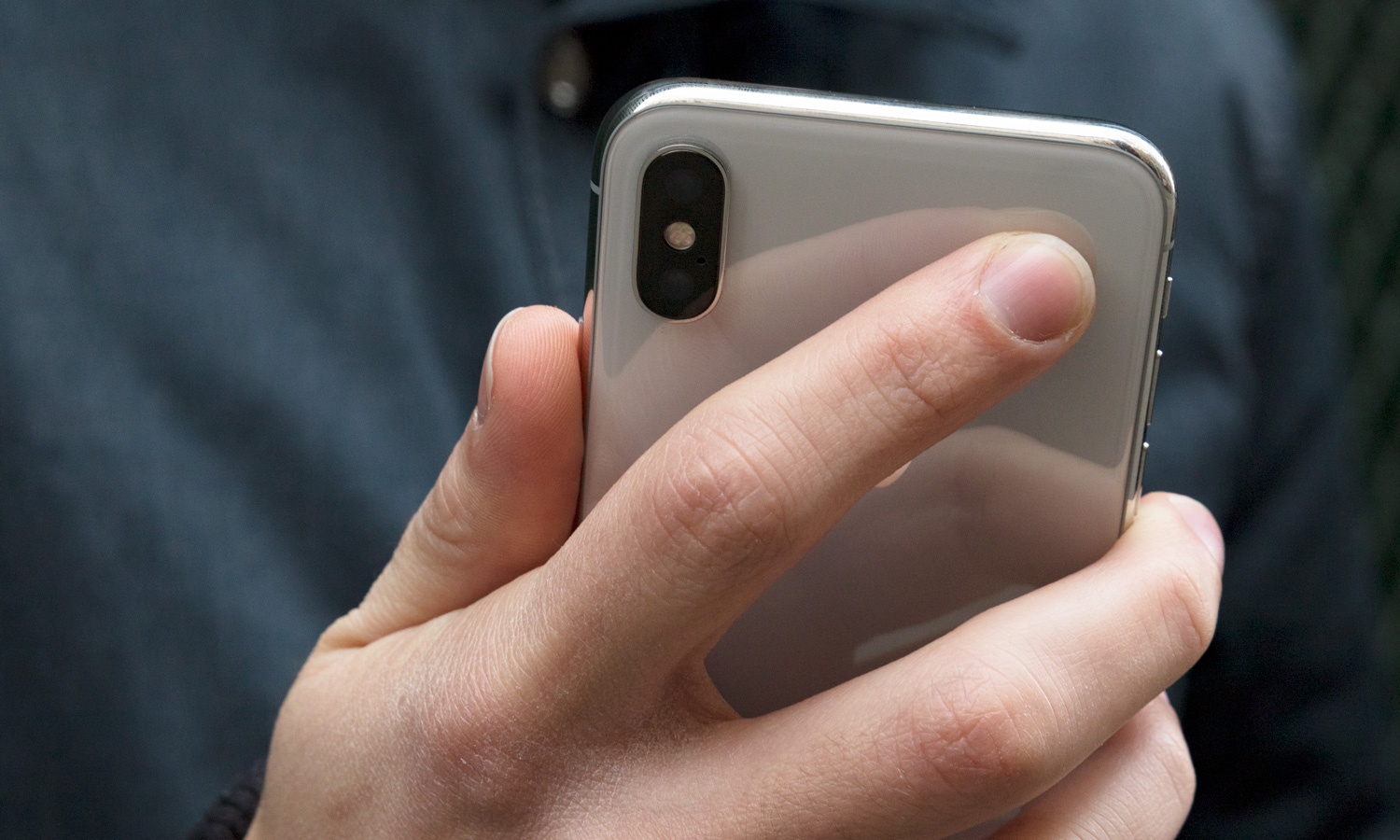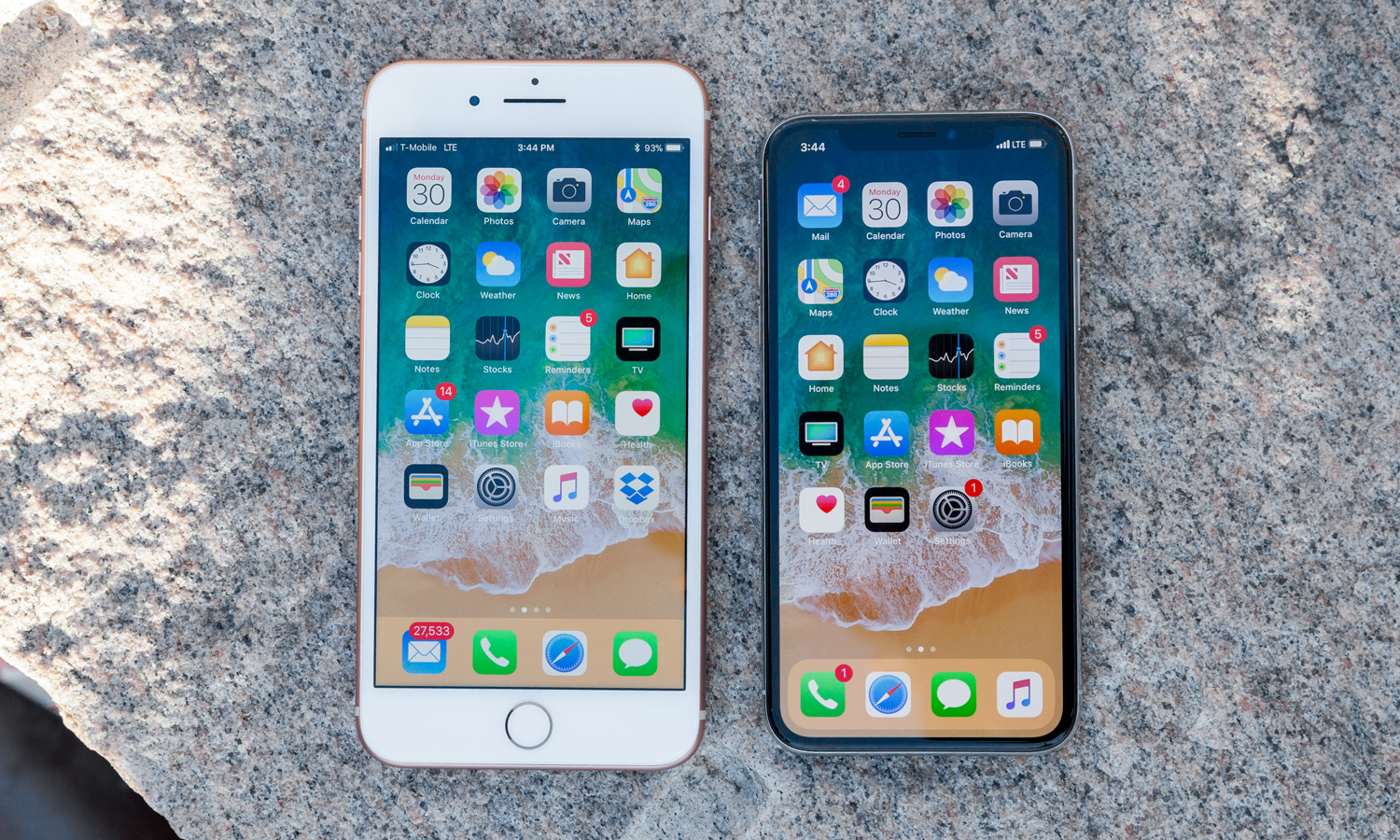How Critics Got the iPhone X ‘Panic’ Story So Very Wrong
Analysts warned that iPhone sales were slumping; they were wrong. Here’s why the iPhone’s continuing to sell.
Lately there's been a lot of doubt about the iPhone. The release of the iPhone 6 and 6 Plus in late 2014 led to three straight quarters where growth surpassed 50 percent. It was huge — but unsustainable. iPhone sales shrunk, then began to grow slowly again. This year the scuttlebutt from industry sources was that the iPhone X was a flop, and that Apple's status in the Chinese phone market was shaky.

With the release of Apple's quarterly results on Tuesday, though, Apple and the iPhone are still riding high. The doubts of analysts have been kept at bay, at least temporarily. The fact is, it's good to be in the smartphone business, and Apple knows that better than anyone. "I think the smartphone is sort of the best market for a consumer product company in the history of the world,” Apple CEO Tim Cook said on Tuesday. “It’s a terrific market and we’re proud to be a part of it.”
Fears of the iPhone X having weak sales were stoked by reports that Apple had cut its orders of components that it uses in the iPhone X, including flexible OLED screens from Samsung. But Apple said that the iPhone X remained the top selling iPhone in its product line for every single week of the March quarter, and while sales were up slightly, revenue was up quite a bit.
MORE: The iPhone X Is Winning the Phone War (And It's Not Even Close)
The answers to the mistaken reports of weak sales could be a fairly simple one, based on analysis of the average sales price (ASP) of an iPhone. As Apple pointed out, the ASP was higher this quarter than it was a year ago. But it's important to keep in mind that not only does the iPhone X exist, at a base price higher than any Apple's ever asked, but the iPhone 8 and 8 Plus released last fall also cost more than the iPhone 7 and 7 Plus did the year before. So while the iPhone X helps boost iPhone ASP, so do the iPhone 8 and 8 Plus.

Also interesting: iPhone ASP dropped from the holiday quarter. That would seem to suggest that the mix of iPhones being bought last quarter was tilted more toward the iPhone X than this quarter. It makes me suspect that perhaps initial demand for the iPhone X was so high that it made Apple think it would be a somewhat larger percentage of the iPhone product mix overall, so it cranked up iPhone X production. But the lower ASP's in the fiscal second quarter suggest that perhaps the iPhone X is a smaller part of the whole than it was right out of the gate. That could lead to Apple having some more iPhones than they were able to sell right away, which would lead to a reduction in supply orders. Apple CFO Luca Maestri called it "a temporary event... that should unwind over time."
There was also quite a bit of speculation that, given the difficulties in the Chinese smartphone market lately, with slowing sales and increased competition, the iPhone X might be in for a rocky ride. Instead, the previous accepted wisdom — that Chinese customers are motivated to buy new hardware designs — seems to have been proven right.
Apple's quarter was strong in China, up 21 percent in revenue, and the top three smartphone models in China last quarter were iPhones — the iPhone X, presumably followed by the iPhone 8 and 8 Plus. Apple's good quarter in China didn't stop with the iPhone; services and wearables grew at a fast pace, and the Mac's share of the Chinese PC market grew as well.
So what comes next for the iPhone? How does Apple keep growth happening in a product line that's already so large and successful? How can the iPhone continue to defy gravity?
In speaking with financial analysts on Tuesday, Cook said this regarding the technologies Apple built into the iPhone X: “Obviously, if those technologies move to a lower price point, that may lead to increased unit demand.”
That seems pretty clear to me. Cook is saying that the new tech Apple introduced with the iPhone X will start rolling down to lower-cost phones, and he figures that it will drive demand. Presumably Apple will keep innovating at the high end of the iPhone product line, but those innovations — Face ID, for example — will eventually drive sales of lower-end models. The wheel keeps on turning, doubt about the future of the iPhone will slowly seep back in from some quarters, and Apple will just keep on selling iPhones.
Image Credits: Tom's Guide
Sign up to get the BEST of Tom's Guide direct to your inbox.
Get instant access to breaking news, the hottest reviews, great deals and helpful tips.
Jason Snell was lead editor of Macworld for more than a decade and still contributes a weekly column there. He's currently running the Six Colors blog, which covers all of Apple's doings, and he's the creative force behind The Incomparable, a weekly pop culture podcast and network of related shows.
-
Steffen Jobbs Apple haters want all of Apple's products to be flops. Proof in point. Apple has sold far more AppleWatches than Amazon has sold Echo devices. Critics say AppleWatch is a huge flop but claim the Echo is a great success. There's something definitely odd going on. Apple is making far more revenue from AppleWatch than Amazon is making from all of its Echo devices. All Echo devices are much, much cheaper than an AppleWatch and Apple is still selling more AppleWatches than Amazon is selling Echo devices. What makes one product a success and another a failure? That's hard to tell. I don't think it should be based on sales numbers alone. It should include how well a product works or how useful it is. I think critics are biased against Apple because Apple products are more expensive than other companies' products.Reply
Reviewers didn't like the iPhone X notch, so they assumed that all consumers would dislike the notch and not buy the iPhone X. Critics said the iPhone X was too expensive, so they assumed no one could afford to buy an iPhone X. All of Apple's so-called failures are usually based on hater's assumptions.
There are other weird beliefs. If any Apple product doesn't sell in huge numbers from the first day or there's no line of people standing in front of Apple stores, the critics will immediately believe that particular product is a failure. Also, if Apple doesn't announce sales numbers for a particular product, it is immediately assumed Apple is hiding a product that is a failure. -
jchy0912 Agreed 100%. I hope this will continue for a long, long time. Great for containing the share price. Apple will use less money to buy more shares at cheaper price for the USD 100 billion shares buyback!Reply -
jorge1170xyz A 3% YoY growth in iPhone sales is a good accomplishment, but not all too impressive in my view given the current "booming" economic climate. For starters, the World population grows by 1% a year, and the number of people Worldwide who are advancing into a financial situation that could even consider buying an Apple product surely grew by more than 1% (emerging, advancing economies with growing middle classes). Secondly, this year was supposed to be an iPhone "super-cycle" and therefore the fact that there was a small 3% bump could be easily explained by "Pent-up demand" (people who waited out the 7) much more than by newly found enthusiasm for the iPhone in general. Lastly, we are in a massive Worldwide asset bubble right now, where low interest rates are still causing unjustified asset appreciation which in turn causes lots of "unorthodox" wealth to be produced. In times like this, one would EXPECT all those people making large windfalls to spend it on "status symbol" items like iPhones. So, given all those ideal and perfectly-bullish factors in 2018, the fact that iPhone sales only went up 3% is not that really impressive to me. What it tells me is that if/when any leg of that perfect economic stool is removed (or even weakened), YoY gains will not be possible any longer.Reply -
Dan Andersen The iPhone's 3% YoY growth is particularly impressive in view of the fact that there was an overall *decrease* YoY in worldwide smartphone sales of 5.6% in Q4 2017 according to Gartner.Reply
